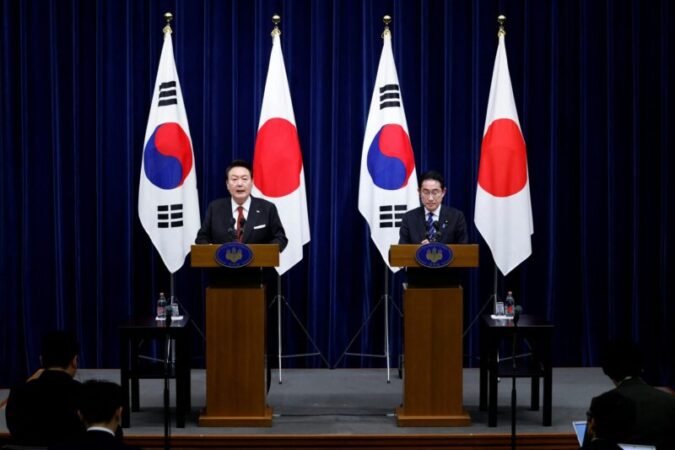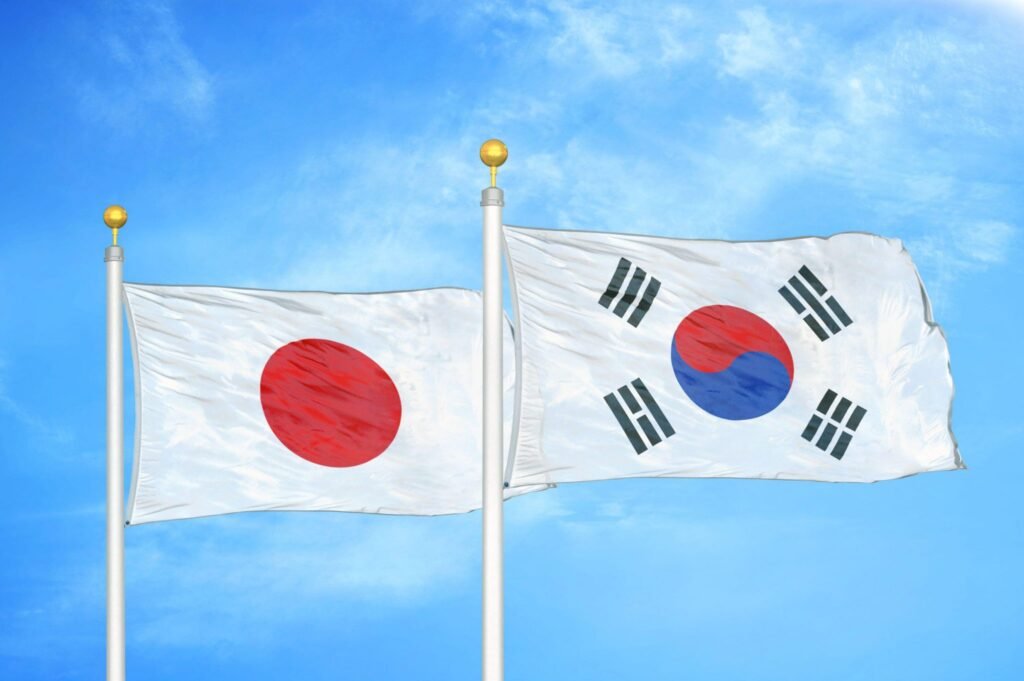South Korea-Japan Diplomatic Relations: Avenues for Rapprochement through Joint Military Exercises

Abstract
Diplomatic relations between South Korea and Japan have often been marked by tensions and disputes, mainly due to historical and territorial issues. However, despite these challenges, there are opportunities for rapprochement between the two countries in terms of both strategic communication and trust. This article explores the relationship between South Korea and Japan, highlights the challenges that have affected it, and examines how joint military exercises could offer avenues for the two nations to come together.
History of the relationship
After the end of World War II in 1945, Korea was liberated from Japanese occupation and divided into two parts: communist North Korea and pro-Western South Korea. Meanwhile, Japan was occupied by U.S.-led Allied forces. In the following years, relations between South Korea and Japan were strained due to the painful memories of the Japanese occupation of Korea for 35 years, from 1910 to 1945. Koreans were subjected to atrocities such as forced labour, forced conscription, and brutal medical experiments conducted by Japanese forces.
In 1965, the two countries signed a treaty of normalization of relations, which officially ended the Japanese occupation of Korea and established diplomatic relations between the two countries. The treaty also provided for financial compensation from Japan for damages caused by the occupation. However, relations between the two countries were strained in the 1980s due to Japanese claims to the Dokdo Islands, also known as Takeshima in Japanese, which are controlled by South Korea. Japan’s attempts to claim the islands led to massive protests in South Korea.
In 1998, South Korea and Japan signed a cooperation agreement on fisheries in the East Sea, which allowed for cooperation in the management of fisheries resources in the region. In 2002, relations between the two countries improved when South Korea co-hosted the World Cup soccer tournament with Japan. The two countries also held a series of summits to strengthen economic and political cooperation.

Relations between South Korea and Japan deteriorated again in 2012 when South Korean President Lee Myung-bak visited the Dokdo Islands, prompting outrage from the Japanese government. Since then, relations have been marked by a series of tensions and quarrels. In 2015, Japan issued an official apology for the “comfort women,” who were Korean women forced to work as sex slaves for Japanese soldiers during the war. However, Koreans criticized the apology for not being sincere enough or for not being accompanied by financial compensation. In 2018, relations between the two countries escalated further when South Korea’s Supreme Court ordered Japanese companies to pay compensation to Korean workers forced to work for them during the war. Japan strongly protested.
Relations between South Korea and Japan have been marked by the Japanese colonial occupation of Korea from 1910 to 1945, during which time many Koreans suffered human rights abuses. Historical disputes persist, including compensation for Korean victims of forced labour and comfort women, as well as territorial claims over the Dokdo/Takeshima Islands.
Current Challenges and Tensions
The current challenges facing the South Korea-Japan bilateral relationship are complex and multifaceted, with unresolved historical issues and territorial disputes continuing to fuel tensions. In addition, differences in interpretations of history, claims over maritime resources, and trade disputes have also contributed to the deterioration of diplomatic relations.
Joint Military Exercises: Opportunities for Rapprochement
Joint military exercises between South Korea and Japan are seen as possible avenues for rapprochement for several reasons.
First of all, these exercises allow the two countries to strengthen their military cooperation and develop a better understanding of each other’s capabilities. Joint exercises often involve simulated emergencies and exchanges of techniques and expertise, which can help build trust and cooperation between the two countries. Joint military exercises are also seen as a deterrent against regional threats such as North Korea and China, as the two countries share common regional security concerns, particularly in the face of North Korea’s nuclear provocations and ballistic missile programs. Joint military exercises can strengthen their ability to work together in a crisis and respond to potential threats.
Furthermore, joint military exercises can foster a more open and constructive dialogue between the two countries on security issues and regional concerns. By working together on military exercises, the two countries can also strengthen their mutual understanding and respect, which can help overcome historical tensions and cultural differences. However, it should be noted that joint military exercises are not a panacea for resolving long-standing issues between the two countries, such as compensation for forced labourers and comfort women during the war. Therefore, it is important to continue to work on all possible avenues of rapprochement to improve relations between South Korea and Japan.
The possible avenues of rapprochement between Japan and South Korea through these military exercises include:
- Confidence building: The ROK-Japan joint military exercises provide an opportunity to strengthen trust and mutual understanding between the two countries. Cooperation in areas of shared security can promote regular exchanges and interactions between the two countries’ armed forces, facilitating constructive dialogue and the development of more stable relations.
- Regional Security Coordination: Joint military exercises can also serve as a platform for coordinating regional security efforts. Given the growing security challenges in East Asia, close cooperation between South Korea and Japan is essential to promote stability and peace in the region. Joint exercises help strengthen preparedness and response to common threats, such as North Korean provocations or aggressive maritime activities.
- Building Communication Mechanisms: Joint military exercises can provide a platform for building stronger bilateral communication mechanisms. Formal and informal channels of dialogue can be established to facilitate information exchange, crisis management, and dispute resolution. Open and regular communication can reduce misunderstandings and contribute to better mutual understanding.
- Promotion of Economic Cooperation: Joint military exercises can also be an opportunity to strengthen economic cooperation between South Korea and Japan. Cooperation in areas such as defence technology and defence industries can promote broader economic cooperation. In addition, enhanced economic cooperation can stimulate economic growth in both countries and promote positive interdependence.
- Promotion of Public Diplomacy: Joint military exercises can also be a tool to promote public diplomacy between South Korea and Japan. Cultural exchanges and communication initiatives can enhance mutual understanding and reduce stereotypes. Organizing joint events can help raise awareness of bilateral cooperation and its benefits to both countries.
Despite the potential benefits, joint military exercises have also been criticized for their potential to exacerbate tensions between the two countries. Demonstrations against the joint exercises have often taken place in South Korea due to the perception that they are a symbol of the military alliance with the United States.
Diplomatic relations between South Korea and Japan are complex and multifaceted, but joint military exercises offer avenues of rapprochement for both nations. Joint exercises can build trust, coordinate regional security efforts, establish stronger communication mechanisms, promote economic cooperation, and public diplomacy. For both countries, joint military exercises can be a tool to promote stability and peace



















